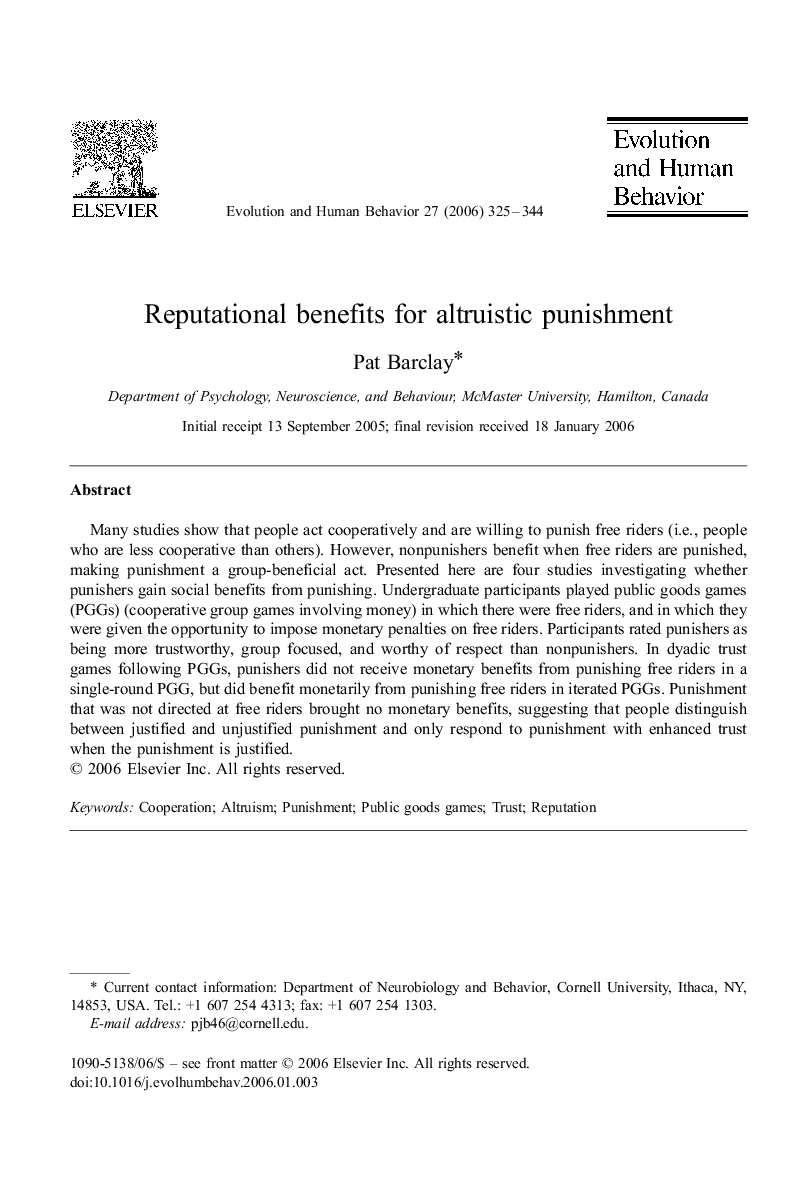| Article ID | Journal | Published Year | Pages | File Type |
|---|---|---|---|---|
| 943576 | Evolution and Human Behavior | 2006 | 20 Pages |
Many studies show that people act cooperatively and are willing to punish free riders (i.e., people who are less cooperative than others). However, nonpunishers benefit when free riders are punished, making punishment a group-beneficial act. Presented here are four studies investigating whether punishers gain social benefits from punishing. Undergraduate participants played public goods games (PGGs) (cooperative group games involving money) in which there were free riders, and in which they were given the opportunity to impose monetary penalties on free riders. Participants rated punishers as being more trustworthy, group focused, and worthy of respect than nonpunishers. In dyadic trust games following PGGs, punishers did not receive monetary benefits from punishing free riders in a single-round PGG, but did benefit monetarily from punishing free riders in iterated PGGs. Punishment that was not directed at free riders brought no monetary benefits, suggesting that people distinguish between justified and unjustified punishment and only respond to punishment with enhanced trust when the punishment is justified.
